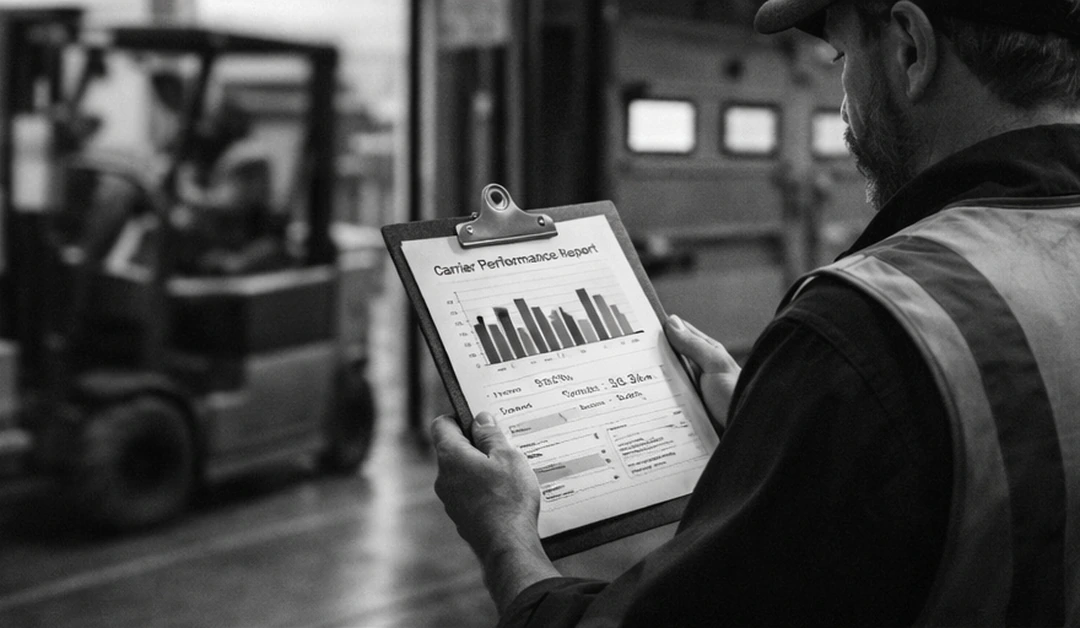Finding the right logistics partner is crucial for your business’s success. One option to consider is a 3PL broker. In this blog post, we’ll explore what a 3PL broker is, why they are essential for e-commerce businesses, and how to choose the right one for your needs.
What is a 3PL Broker?
Let’s start with the basics. A 3PL broker, or Third-Party Logistics broker, is like a matchmaker for your shipping needs. They connect you, the e-commerce business owner, with the proper transportation and logistics providers. It’s like having a logistics expert helping you navigate the complexities of getting your products from your warehouse to your customer’s doorsteps.
Why Do You Need a 3PL Broker?
Now, you might wonder, “Why do I need a 3PL broker?” The answer is simple: they make your life easier. Here’s how:
1. Save Time and Resources: Managing logistics can be time-consuming and complex. With a 3PL broker, you can focus on growing your business while they handle the nitty-gritty details of shipping.
2. Expertise and Connections: 3PL brokers are experts in the field. They know the ins and outs of the logistics industry and have a network of trusted partners, which means they can find the best solutions for your shipping needs.
3. Cost Efficiency: By leveraging their industry knowledge and connections, 3PL brokers can often negotiate better rates for you. This can lead to cost savings in the long run.
4. Flexibility: Whether you’re shipping domestically or internationally, dealing with perishable goods or oversized items, 3PL brokers have the expertise to handle everything. They can adapt to your specific requirements.
Are There Different Types of 3PL Brokers?
Yes, there are different types of 3PL (Third-Party Logistics) brokers, each specializing in specific aspects of logistics and supply chain management to meet the diverse needs of their clients. The main types of 3PL brokers include:
1. Freight Brokers: Freight brokers specialize in connecting shippers with transportation carriers to facilitate the movement of goods. They focus primarily on arranging cargo transportation, whether by truck, rail, air, or sea. Freight brokers negotiate rates, coordinate shipments, and ensure that goods are transported efficiently and cost-effectively.
2. Truckload Brokers: These brokers specifically arrange total truckload shipments. They match shippers with trucking companies that can transport a full trailer load of goods. Truckload brokers may specialize in various types of truckload freight, such as dry van, refrigerated, or flatbed shipments.
3. Less-Than-Truckload (LTL) Brokers: LTL brokers specialize in coordinating shipments that do not require a full truckload. They work with carriers that consolidate smaller shipments from different shippers onto a single truck. LTL brokers help shippers find the most cost-efficient LTL carriers for their partial load shipments.
4. Intermodal Brokers: Intermodal brokers focus on intermodal transportation, which involves using multiple modes of transport (e.g., truck, rail, and sometimes sea or air) to move freight containers. These brokers help shippers optimize their supply chain by selecting the most suitable combination of transportation modes.
5. Cold Chain Brokers: Cold chain brokers specialize in temperature-sensitive or refrigerated freight, such as perishable goods and pharmaceuticals. They have expertise in coordinating the transportation and storage of products that require specific temperature controls throughout the supply chain.
6. Specialized Cargo Brokers: Some brokers specialize in handling specific types of cargo, such as hazardous materials (hazmat brokers), oversized or overweight shipments (heavy haul brokers), or high-value goods (high-value cargo brokers). These brokers understand their specialized cargo types’ unique requirements and regulations.
7. International Freight Brokers: These brokers focus on arranging shipments that involve international transportation. They assist with customs clearance, documentation, and navigating international regulations. International freight brokers may specialize in ocean, air, or both.
8. E-commerce and Fulfillment Brokers: E-commerce and fulfillment brokers cater to online retailers and businesses seeking order fulfillment services. They help businesses manage e-commerce logistics, including warehousing, order processing, and last-mile delivery.
9. Supply Chain Brokers: Supply chain brokers provide comprehensive supply chain management services beyond transportation. They assist with inventory management, demand forecasting, procurement, and overall supply chain optimization.
10. Hybrid Brokers: Some brokers offer a combination of the above services, tailoring their offerings to meet their clients’ unique needs. These brokers may handle a variety of logistics functions, from transportation to warehousing to supply chain consulting.
The choice of a 3PL broker type depends on a shipper’s specific logistics requirements and the complexity of their supply chain. Different businesses may require different types of brokers to address their unique needs effectively.

How to Choose the Right 3PL Broker
Now that you understand the benefits of working with a 3PL broker, let’s explore how to choose the right one for your e-commerce business.
Step 1: Assess Your Logistics Needs
The first step is to understand your logistics needs. Do you primarily ship within the country or have international ambitions? Are you dealing with delicate, temperature-sensitive products or standard items? Knowing your needs is the foundation of finding the right 3PL broker.
Step 2: Define Your Business Goals
What are your e-commerce business goals? Are you looking to expand your customer base, reduce shipping costs, or improve delivery times? Your goals will help shape your choice of a 3PL broker.
Step 3: Consider Your Product Characteristics
Consider what you sell. If you deal with specialized products like perishable goods or oversized items, you’ll want a 3PL broker with expertise in handling those specific product types.
Step 4: Evaluate Order Fulfillment Needs
Order fulfillment is a critical part of e-commerce. If your order volume is high, you may need a broker specializing in efficiently processing and shipping online orders.
Step 5: Think About Scalability
Think ahead. Will your business grow? Ensure your 3PL broker can scale their services to accommodate your expansion.
Step 6: Budget Constraints
Budget matters. Different 3PL brokers have different pricing structures. Find one that aligns with your budgetary constraints.
Step 7: Customer Service and Technology
Consider the level of customer service and technology offered. E-commerce requires real-time tracking, inventory management, and seamless integration with your online store.
Step 8: Research Reputation and References
Do your homework. Research potential 3PL brokers thoroughly. Check their reputation and read client reviews. Ask for references from other e-commerce businesses they’ve served.
Step 9: Consultation and Customization
Consult with potential 3PL brokers. Discuss your specific needs and ensure they can customize their services to match your business requirements.
Step 10: Review Contract Terms
Review the contract terms carefully. Ensure they align with your business objectives. Look at service levels, pricing, and termination clauses.
Step 11: Visit Their Facilities (If Possible)
If you can, visit the 3PL broker’s facilities. Seeing their operations firsthand can provide valuable insights.
Step 12: Seek Recommendations
Ask for recommendations from industry peers or e-commerce forums. They may have insights that help you make an informed decision.
Wrapping Up
In conclusion, choosing the right 3PL broker for your e-commerce business is crucial. By following these steps and considering your specific needs and goals, you can find the perfect match to help your business thrive and seamlessly deliver products to your customers. Remember, a reliable 3PL broker can be the logistical backbone that propels your e-commerce business to success.




